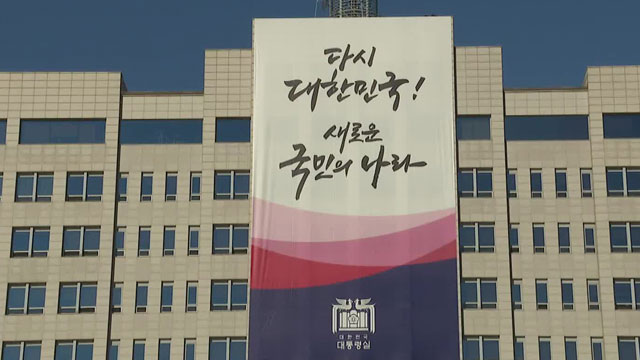[News Today] “KAKAOTALK FINE NOTICE INVALID”
입력 2024.09.20 (16:21)
수정 2024.09.20 (16:21)
읽어주기 기능은 크롬기반의
브라우저에서만 사용하실 수 있습니다.
[LEAD]
Have you ever been notified of a fine from the Korean government via a text message? Well then, it's not valid. A court has ruled invalid a Seoul district office’s notification via KakaoTalk to an American resident. The ruling underscores that without lawful notification methods, administrative actions cannot be enforced.
[REPORT]
In July 2020, the Seoul district of Yeongdeungpo-gu imposed a fine of some 60 million won (USD 45,000) on an American resident whom we will call A for violating the real name real estate transaction act.
The notice was sent to a community service center, which was the administrative address indicated in A's resident registration.
This was because A was residing overseas and the local admin center served as the individual's domicile on paper.
Three years later in August of 2023, Yeongdeungpo-gu district sent a KakaoTalk message to A alerting the person about the fine as well as an arrears or delayed payment notice of 6 million won (USD 4,500).
It was only then that A came to know about the initial fine. A then filed an administrative lawsuit arguing the fine imposed is invalid because it was not notified in a legitimate way.
Yeongdeungpo-gu district hit back saying it delivered the notice to A's registered address and it has no legal responsibility to go to the length of checking the actual recipient.
The court sided with A.
The court said that under the Local Taxes Act, documents should be delivered to a location that serves as one's living quarters and a community center does not qualify.
It also said the district office could have easily verified A's overseas residence to look up an address abroad or reach out through means of public notification.
The court added that without prior request, KakaoTalk messaging cannot be viewed as a legitimate electronic delivery method.
The court ruled the fine should be nullified and the district office also pay for the litigation cost.
However, if the district takes steps to reimpose the fine and this time delivers the notice in a lawful way, A would need to eventually pay the fine.
■ 제보하기
▷ 카카오톡 : 'KBS제보' 검색, 채널 추가
▷ 전화 : 02-781-1234, 4444
▷ 이메일 : kbs1234@kbs.co.kr
▷ 유튜브, 네이버, 카카오에서도 KBS뉴스를 구독해주세요!
- [News Today] “KAKAOTALK FINE NOTICE INVALID”
-
- 입력 2024-09-20 16:21:34
- 수정2024-09-20 16:21:58
[LEAD]
Have you ever been notified of a fine from the Korean government via a text message? Well then, it's not valid. A court has ruled invalid a Seoul district office’s notification via KakaoTalk to an American resident. The ruling underscores that without lawful notification methods, administrative actions cannot be enforced.
[REPORT]
In July 2020, the Seoul district of Yeongdeungpo-gu imposed a fine of some 60 million won (USD 45,000) on an American resident whom we will call A for violating the real name real estate transaction act.
The notice was sent to a community service center, which was the administrative address indicated in A's resident registration.
This was because A was residing overseas and the local admin center served as the individual's domicile on paper.
Three years later in August of 2023, Yeongdeungpo-gu district sent a KakaoTalk message to A alerting the person about the fine as well as an arrears or delayed payment notice of 6 million won (USD 4,500).
It was only then that A came to know about the initial fine. A then filed an administrative lawsuit arguing the fine imposed is invalid because it was not notified in a legitimate way.
Yeongdeungpo-gu district hit back saying it delivered the notice to A's registered address and it has no legal responsibility to go to the length of checking the actual recipient.
The court sided with A.
The court said that under the Local Taxes Act, documents should be delivered to a location that serves as one's living quarters and a community center does not qualify.
It also said the district office could have easily verified A's overseas residence to look up an address abroad or reach out through means of public notification.
The court added that without prior request, KakaoTalk messaging cannot be viewed as a legitimate electronic delivery method.
The court ruled the fine should be nullified and the district office also pay for the litigation cost.
However, if the district takes steps to reimpose the fine and this time delivers the notice in a lawful way, A would need to eventually pay the fine.
이 기사가 좋으셨다면
-
좋아요
0
-
응원해요
0
-
후속 원해요
0















이 기사에 대한 의견을 남겨주세요.